45,000 Minutes of Hope are not Enough
… migrants' needs do not: dignified treatment, health care, a safe place to stay and protection by … support the authorities' efforts to provide health care, infrastructure, water and …
… migrants' needs do not: dignified treatment, health care, a safe place to stay and protection by … support the authorities' efforts to provide health care, infrastructure, water and …

… government has issued assurances that the danger has passed, volcano experts have not, at … to Goma. This includes providing water and health care and reuniting separated families. They are …
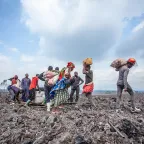
… minute of this ongoing violence poses a danger to lives, homes, essential services, and … population in Jenin have unimpeded access to health services, shelter, food, and water. … people and be able to provide emergency care without putting their own lives at risk. …
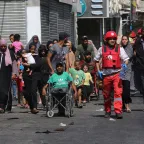
… difficulty accessing basic services, such as health care, water, sanitation, shelter and food, as … aids or equipment. In many cases, normal health and social services are disrupted, or …
… by Afghanistan's Ministry of Public Health (MOPH) as one of only four COVID-19 … . On top of the steadily growing COVID-19 danger, health care staff face the looming threat that put …
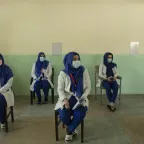
… has already reduced the access to food, health and education for many. The ICRC is … facilities like hospitals, primary health care centers with donations of disinfectant … awareness messages in the education on the danger of mines in Western Iran. By supporting …
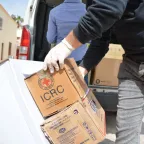
… 64,466 Detainees have improved access to health care following the technical support and … have benefitted from 77 Health Care in Danger (HCiD) awareness sessions on managing …

… It stands as a testament to the courage of health workers and the will to survive of the … severely damaged or destroyed much of Gaza’s health infrastructure. Patients and medical … rebuild, until civilians could safely access care. One year later, the field hospital …

… developed with Red Cross and Red Crescent health experts and targeting simultaneously … including partnering with organizations like health agencies and NGOs who are actively using … access to clean water, and supporting health care facilities and workers with training, …
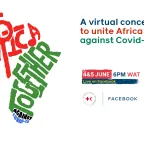
… looking forward to no longer having to face danger and a harsh climate to fetch water from … they realized that it failed to meet World Health Organization standards and was unfit for … and to cover social security and health care costs, expenses relating to farming and …
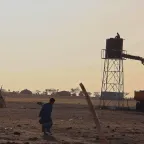
Try one of the following resources:
Created in 1863, the ICRC library, alongside the ICRC archives, provides an indispensable documentary reference on the organization itself and international humanitarian law.
International humanitarian law is based on a number of treaties, in particular the Geneva Conventions of 1949 and their Additional Protocols, and a series of other instruments.
Customary international humanitarian law consists of rules that come from "a general practice accepted as law" and that exist independent of treaty law.